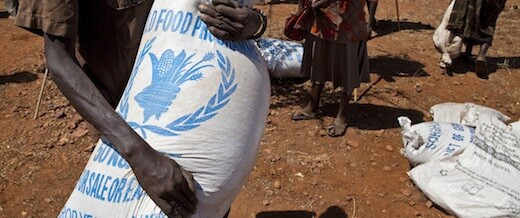
McLeod Group Blog by Ian Smillie, January 4, 2017
In a recent New York Review of Books article, William Easterly argues that by conflating the ‘war on terror’ with the ‘war on poverty’, Western donor governments have made a big mistake.
Easterly, Professor of Economics at New York University and author of several powerful critiques of foreign aid (The White Man’s Burden, The Tyranny of Experts) says that Western donors, making a correlation between poverty and terrorism—for which there is little evidence—have in fact strengthened the hand of repressive regimes, making poverty reduction less, rather than more, possible
Terrorism doesn’t flow from poverty, he argues, and throwing aid money at ‘fragile’ states with bad governments only encourages and perpetuates bad governance. Worse, it supports negative stereotypes of poor people, ‘particularly refugees’, contributing ‘at least in some way to today’s resurgent xenophobia in the US and Europe.’ In other words, linking the war on poverty with the war on terror may have helped get Donald Trump elected.
Easterly’s stretch here is at least as big as the one he criticizes, and a little unpacking is warranted. He is right, of course: much foreign aid now and in the past has been used for political ends and commercial interests, working insidiously against its stated purpose.
This does not mean, however, that poverty doesn’t exist; it doesn’t mean that there is no way for outsiders to tackle it, and it doesn’t mean that poverty is not a staging ground for all manner of trouble with international implications: health (think Ebola), the environment, refugees.
And social trouble. Poor people in developing countries work hard and peacefully, against great odds, to survive; they do not become terrorists. But in poor neighbourhoods in most societies, and especially in countries where inequality looms large, there is more crime, social degradation and violence than elsewhere. And in societies where people are hungry, some—unemployed angry young men mostly—are prone to joining groups that aim to overthrow those they see as their oppressors. This is not new: the Bourbons and the Romanovs learned this lesson as they toppled into their graves.
Not all ‘fragile states’, however, are dictatorships and aid does not have to be about propping up bad governments. The problem is that so much aid in the past and now does go to bad regimes that the numbers make Easterly’s case for him, allowing him to chuck babies out with the bathwater. But to suggest that ending poverty would not reduce crime and violence in the poor neighbourhoods of the world is a bridge too far. It almost sounds as though ending poverty isn’t all that important, however you might justify the effort.
Easterly ends by arguing that ‘those who want to support Western humanitarian efforts’ should declare their independence from their governments’ national security programs. This sounds too much like walking away from a larger responsibility and a more proactive possibility. Why not insist instead that government aid be clearly and demonstrably delinked from national security and commercial interests? That it be spent—as advertised—on poverty reduction, human rights and good governance, and that it be made openly accountable to the people who pay for it?
That, of course, would require something more than misery-based fundraising and a hunt for government contracts on the part of ‘those who want to support Western humanitarian efforts.’ It would require an effort—especially by NGOs—to explain some of this to their donors (who are also taxpayers), treating them as responsible adults rather than passive milch cows. It would require a recognition that there is indeed great peril in poverty and ignorance, but that it can be addressed in ways that don’t fall into the traps that Easterly has described so well.
